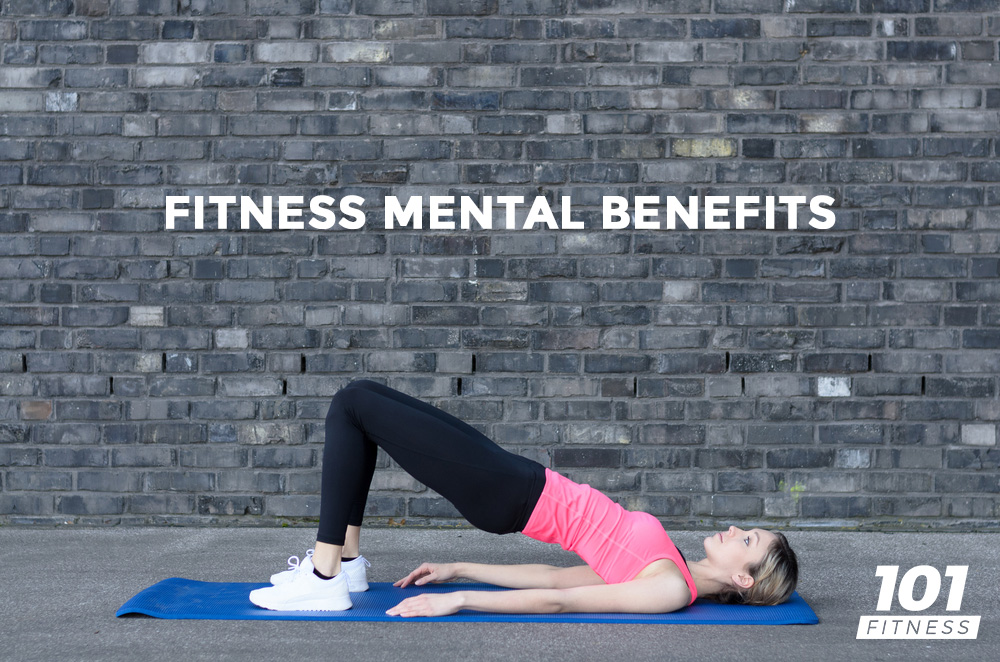
Top 5 mental benefits of Fitness
You already know that Fitness, and sport in general, is beneficial for your physical health. But there’s more good news for you! In recent years, research has also found that fitness can positively affect your mental health. Here are the top 5 Mental benefits of Fitness!
1. Boost your mood

Want a burst of happiness and relaxation? Get involved in a physical activity. Whether you are playing sports, working out at a gym/at home or taking a brisk walk, physical activity triggers brain chemicals that make you feel happier and more relaxed. Exercise releases endorphins, which create feelings of happiness and euphoria, and increases the levels of neurotransmitters such as epinephrine, serotonin, norepinephrine and dopamine, all of which influence your energy levels as well as make you feel great after a challenging workout.
However, stress and depression can influence how your brain functions and can actually change your brain chemistry. That means that skipping your workouts when you feel depressed may prolong the amount of time you’re in a lousy mood. The more you exercise, the more efficient your body becomes at producing and using these happy chemicals, which may explain why some people might feel like they’re addicted to exercise.
Don’t just think of exercise as a way to lose weight and look great—it can help you feel great, too. Physical activity that elevates your heart rate and gets your blood pumping can be a very effective way to change the way you feel and leave you in a better mood. Exercise can help change your mood and leave you feeling sharp, confident and ready-to-go.
2. Improve your concentration

During exercise, it’s not just your muscles that receive a steady stream of oxygenated blood, but also your brain. Exercise increases levels of a neurotransmitter called BDNF, which helps build brain cells and improves transmission of nervous system signals through the brain known as neural patterning. This is why an appropriately challenging workout session can leave you feeling invigorated and mentally sharp.
In addition, trying new workout programs can develop new neural pathways and enhance cognitive function. Doing different exercises and activities will create a number of new pathways in your brain to activate the appropriate motor controls to successfully execute the movements required. Try long session workout will help you get the Nobel Prize for sure!
3. Reduce stress and depression

When you are physically active, your mind is distracted from daily stressors as you are focusing on the exercise. This can help you avoid getting bogged down by negative thoughts. Exercise reduces the levels of stress hormones in your body. At the same time, it stimulates production of endorphins. These are natural mood lifters that can keep stress and depression at bay. Endorphins may even leave you feeling more relaxed and optimistic after a hard workout. Experts agree that more quality research is needed to determine the relationship between sports and depression.
Rough day at the office? Take a walk, head to the gym or use a fitness app at home (of course 101 fitness) for a quick workout. One of the most common mental benefits of exercise is stress relief. Working up a sweat can help manage physical and mental stress. Exercise also increases concentrations of norepinephrine, a chemical that can moderate the brain’s response to stress. So go ahead and get sweaty — working out can reduce stress and boost the body’s ability to deal with existing mental tension.
4. Improve sleep habits

Fitness and other forms of physical activity improve the quality of sleep. They do this by helping you fall asleep faster and deepening your sleep. Sleeping better can improve your mental outlook the next day, as well as improve your mood. A good sleeping habits have a positive impact on many things of your life: faster result, happy mood, be more energetic, have a nice skin, and so on.
For some, a moderate workout can be the equivalent of a sleeping pill, even for people with insomnia. Moving around five to six hours before bedtime raises the body’s core temperature. When the body temp drops back to normal a few hours later, it signals the body that it’s time to sleep. Just be careful not to engage in sports too late in the day. Evening practices within a few hours of bedtime may leave you too energized to sleep. 5 or 6 hours before going to bed is the perfect time.
If you want to practice fitness at the end of the day, follow our plan: fitness, stretching, shower, diner, rest/walking (and last stretch if forgetting) and then go sleep.
5. Boost your self-confidence

The regular exercise that comes with doing fitness can boost your confidence and improve your self-esteem. As your strength, skills, and stamina increase through fitness, your self-image will improve as well. With the renewed vigor and energy that comes from physical activity, you may be more likely to succeed in tasks off the playing field as well as on it.
Regardless of weight, size, gender or age, exercise can quickly elevate a person’s perception of his or her attractiveness, that is, self-worth. Do not try to do this for others but do it for yourself. Now, it’s the time to get going and no excuses, you can get the body you want to have!
Doing fitness and over time, you’ll see that your body is changing but some people will not notice any thing. We explain why in our article about “Late results“ in order to optimize your workout.



